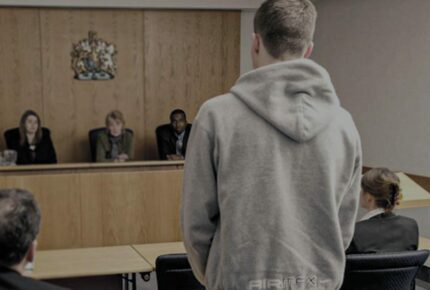

Bestiality (often misspelled as beastiality) is one of the most stigmatised of all the sexual offences. It relates to sexual intercourse with animals. Have you found yourself in the position of being charged with bestiality, or with possessing images showing bestiality? Perhaps it was a joke gone wrong, or some other kind of misunderstanding. Maybe it was curiosity that inspired you find and watch a video online. Regardless of the circumstances, if you have been charged with a bestiality offence you are probably feeling anxious and afraid, and concerned about the potential implications for your life.
This article aims to inform you of the legal elements that constitute the crime of bestiality. It explores the legality of watching bestiality, for example, through online pornography sites. It explains the legal process that will be followed if you are charged with bestiality. Finally, it looks at the defences that you may be able to rely upon if you are charged with this offence.
What is bestiality?
Bestiality is a sexual act with an animal, such as sexual intercourse or oral sex. It is a relatively uncommonly prosecuted offence. A freedom of information request to the Ministry of Justice confirmed that between 2007 and 2016, just 27 people in England and Wales were convicted of bestiality.
Sexual intercourse with live animals is prohibited by Section 69 of the Sexual Offences Act 2003, which states that:
‘1) A person commits an offence if—
(a) he intentionally performs an act of penetration with his penis,
(b) what is penetrated is the vagina or anus of a living animal, and
(c) he knows that, or is reckless as to whether, that is what is penetrated.
(2) A person (A) commits an offence if—
(a) A intentionally causes, or allows, A’s vagina or anus to be penetrated,
(b) the penetration is by the penis of a living animal, and
(c) A knows that, or is reckless as to whether, that is what A is being penetrated by.’
This section does not prohibit sexual acts with a dead animal, or oral intercourse with an animal.
The law also prohibits possessing or distributing pornographic footage of bestiality. This is explored in the next section of this article.
Is watching bestiality illegal in England and Wales?
Watching pornographic footage of bestiality is illegal where it violates English and Welsh law on extreme pornography. Extreme pornography legislation was introduced for public interest reasons in order to protect those involved in the creation of pornographic videos, and also in order to protect society, especially children, from exposure to extreme pornographic material.
The law on watching bestiality is set out at Section 63 of the Criminal Justice and Immigration Act 2008. This prohibits possession of images that show a person performing an act of intercourse or oral sex with an animal, whether dead or alive, where this image is grossly offensive, disgusting or otherwise of an obscene character. Guidance from the CPS suggests that where an image is extreme pornography, it will always be considered to be obscene.
The definition of a pornographic image is one that is ‘of such a nature that it must reasonably be assumed to have been produced solely or principally for the purpose of sexual arousal.’ CPS guidance states that whether an image is pornographic is a matter for the judge or jury to assess, not a question for expert evidence. The guidance also highlights that the defendant’s intention, and whether they were sexually aroused, are not relevant to the assessment of whether the image was pornographic. The guidance also highlights that because the image must be explicit and realistic to be covered by the law, it is unlikely to extend to artistic representations.
Owning or distributing videos of bestiality is also prohibited by the Obscene Publications Act 1959. The act defines obscene content as that which would ‘deprave and corrupt’ the watcher. The Home Office previously released a list of content that would be classified as obscene, which included bestiality. This list has now been withdrawn. However, CPS guidance suggests that where an act is illegal, it is likely to be found to be obscene under this act. This suggests that videos of bestiality would almost certainly contravene this act.
What happens if you are charged for bestiality?
If you are charged with bestiality, this means that the police or the CPS have assessed that there is enough evidence against you to support a prosecution. The next step will be that you will have to attend your first appearance at the Magistrates’ Court. You will then either be remanded in custody or released on bail. If you have been detained, but you would like to be released on bail you can instruct a criminal defence solicitor to make a bail application on your behalf.
Bestiality is an either way offence, which means that depending on the seriousness of the charge, it could be heard in the Magistrates’ Court or in the Crown Court. The Magistrates’ Court will decide whether it has adequate sentencing powers to hear the case. It will also consider whether the case has issues of complexity that make it more appropriate for it to be heard in the Crown Court. If the Magistrates’ Court feels it is capable of hearing the case, it will then be for the defendant to elect whether they wish for their case to be heard by the magistrate or before a jury. This is a strategic decision that should be made in conjunction with your criminal defence solicitor.
Your criminal defence solicitor will help you prepare for your trial. They will obtain copies of documents, witness statements and other information relevant to the case, known as disclosure, from the prosecution. In a bestiality trial, this is likely to involve images, video footage, or other evidence that the act of bestiality took place. It could also include evidence relating to websites where an image or film was shared. If you intend to plead not guilty, your solicitor will help you prepare your defence. This will include tracking down witnesses and other evidence to support your version of events.
In serious cases, your solicitor may instruct a barrister to represent you at your trial. In other cases, the solicitor themselves may represent you. At the trial, the prosecution will begin with an opening speech explaining what crimes you are accused of and the case against you. The prosecution will then call their witnesses and present their evidence. Your representative will have an opportunity to ask each of the prosecution witnesses questions.
Once the prosecution has completed its case, if it appears that the evidence against you is very weak, your representative may make a submission of ‘no case to answer.’
Then, your representative will call the defence witnesses and ask them questions. The prosecution representative will also have the opportunity to question the defence witnesses.
Finally, the prosecution and defence will make closing speeches. After this, the court will deliberate to reach a verdict on whether you are innocent or guilty.
Are there any defences available to bestiality?
Specific defences
Defences to the offence of committing bestiality pursuant to Section 69 of the Sexual Offences Act 2003 could centre around the following:
- You did not penetrate the animal/ were not penetrated by the animal
- You did not consent to the penetration i.e. it took place due to a third party coercing you into the act without you agreeing to it
- The animal in question was dead
General defences
You may also be able to rely upon one of the following general defences:
Duress: you were threatened or pressurised by someone else to have intercourse with the animal and you feared serious consequences if you did not comply.
Mistake: You were mistaken as to key facts of the case, for example, you believed (however incredibly) that you were having sexual intercourse with a consenting human. You cannot rely on your mistaken understanding of the law as a defence.
Automatism: You were unaware of your actions; for example, you were sleepwalking.
Intoxication: You were drugged at the time that you committed the act, or you committed the act whilst under the influence of side effects of prescription medication, which affected your awareness of what you were doing. You cannot, however, rely on voluntary intoxication with drugs or alcohol as a defence.
Insanity: You were suffering from mental health issues at the time of the offence, such that you lacked the capacity to reason. You will have to provide medical evidence to prove that you were suffering from a recognised mental disorder.
Self-defence: You were acting to defend yourself or another person. This is unlikely to be applicable to the offence of bestiality.
Where to get further help
Have you been charged with bestiality? This is a potentially serious charge, and you should instruct a criminal defence solicitor without delay. Here at Stuart Miller Solicitors, our team of experienced and non-judgmental solicitors are here to help. We will guide you through the criminal justice process and provide you with robust and thorough advice and representation. Contact us for a no obligation consultation today!
OUR COMMITMENTS TO YOU:
-
Responsive
A legal expert will consult you within 24 hours of making an enquiry.
-
Empathetic
We will always treat you with trust, understanding and respect.
-
Specialised
Your case will be handled by an expert who specialises in your type of offence.
-
Proactive
We will take early action to end proceedings as soon as it is practically and legally possible to do so.
-
Engaged
You will be kept updated on your case at all times. We will provide a named contact available to answer your questions.
-
Caring
We understand this is a difficult and stressful time for you and your family. Our team will support you every step of the way.
-
Tenacious
We will never give up on your case. We fight tirelessly to get you the best possible outcome.

